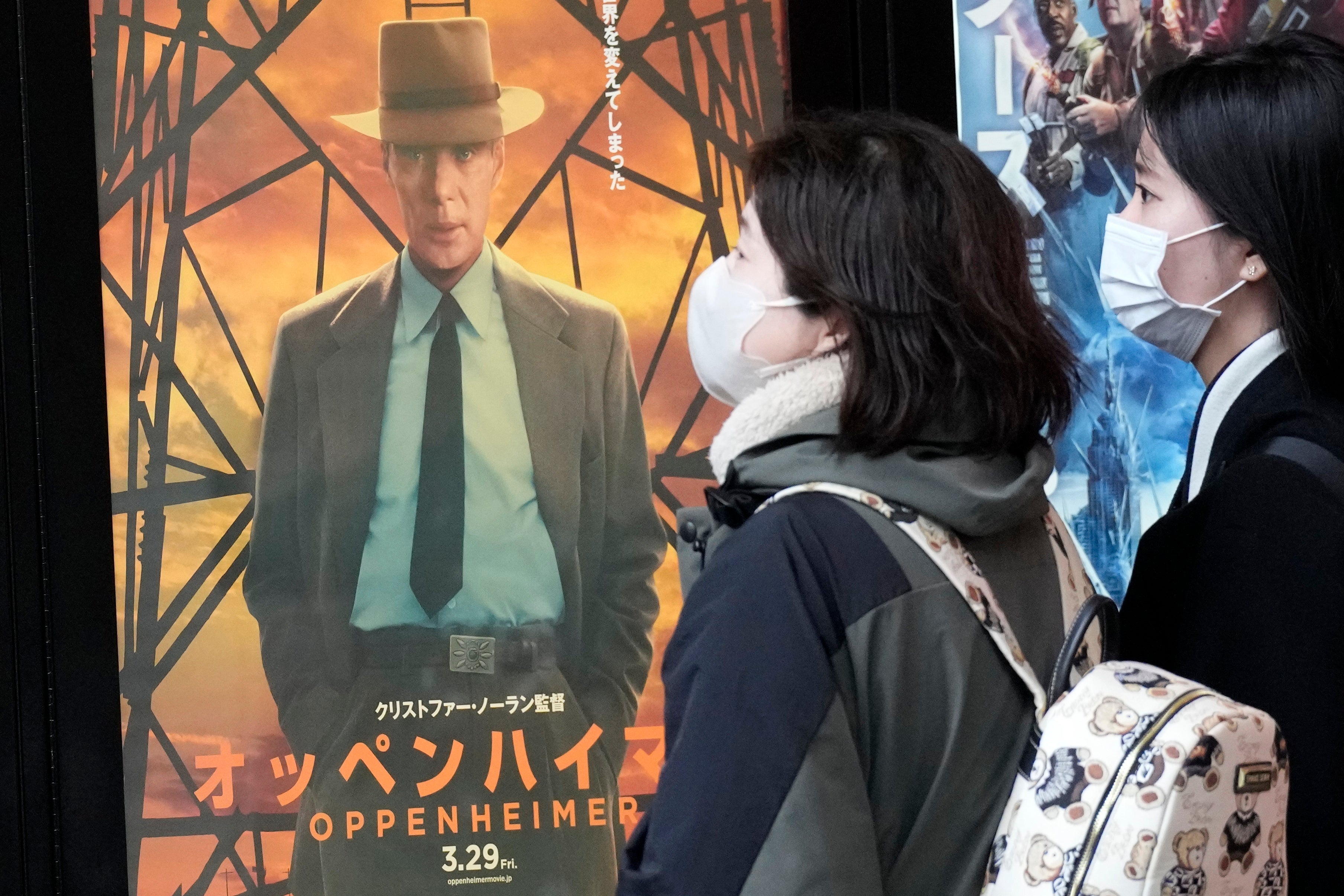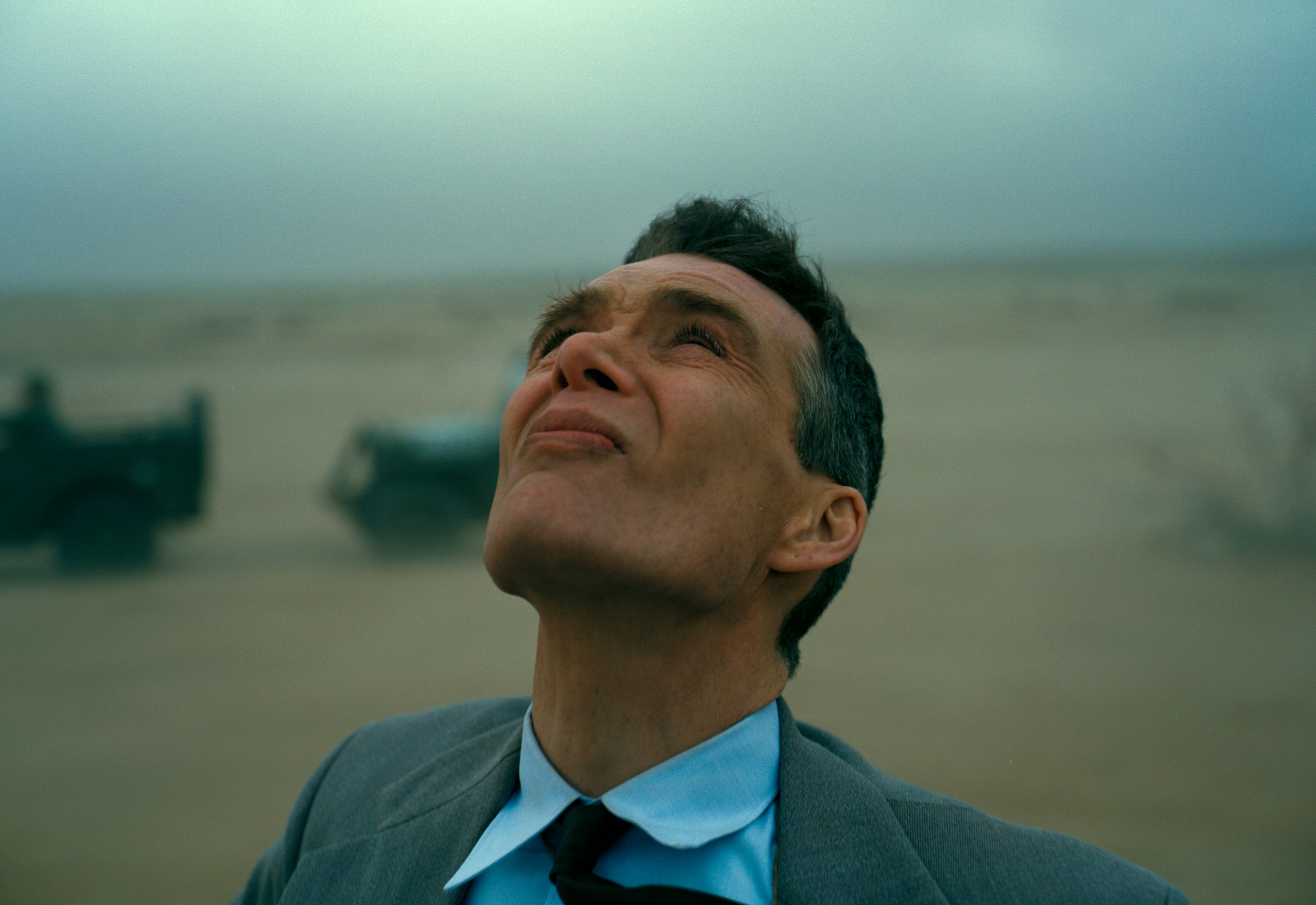Oppenheimer premieres in Japan eight months late eliciting mixed emotions
‘Oppenheimer’ has finally opened in the country where two cities were obliterated by the nuclear weapons invented by the American scientist

Your support helps us to tell the story
From reproductive rights to climate change to Big Tech, The Independent is on the ground when the story is developing. Whether it's investigating the financials of Elon Musk's pro-Trump PAC or producing our latest documentary, 'The A Word', which shines a light on the American women fighting for reproductive rights, we know how important it is to parse out the facts from the messaging.
At such a critical moment in US history, we need reporters on the ground. Your donation allows us to keep sending journalists to speak to both sides of the story.
The Independent is trusted by Americans across the entire political spectrum. And unlike many other quality news outlets, we choose not to lock Americans out of our reporting and analysis with paywalls. We believe quality journalism should be available to everyone, paid for by those who can afford it.
Your support makes all the difference.The Oscar-winning film Oppenheimer has finally premiered in the country where two cities were obliterated 79 years ago by the nuclear weapons invented by the American scientist who is the subject of the film.
Japanese filmgoers’ reactions were understandably mixed and highly emotional.
Toshiyuki Mimaki, who survived the bombing of Hiroshima when he was three, said he had been fascinated by the story of J Robert Oppenheimer, often called “the father of the atomic bomb” for his role in leading the Manhattan Project.
“What were the Japanese thinking, carrying out the attack on Pearl Harbor, starting a war they could never hope to win?” he said, sadness in his voice, in a telephone interview.
He is now chair of a group of bomb victims called the Japan Confederation of A- and H-Bomb Sufferers Organisation, and he saw Oppenheimer at a preview event. “During the whole movie, I was waiting and waiting for the Hiroshima bombing scene to come on, but it never did,” Mr Mimaki said.
Oppenheimer does not directly depict what happened on the ground when the bombs were dropped on Hiroshima and Nagasaki. The explosions turned some 100,000 people instantly into ashes, and killed thousands more in the days that followed, mostly civilians.
The film instead focuses on the scientist as a person and his internal conflicts.
The film’s release in Japan, more than eight months after it opened in the US, had been awaited with trepidation because of the sensitivity of the subject matter.
Former mayor of Hiroshima Takashi Hiraoka, who spoke at a preview event in the southwestern city, was more critical of what was omitted.
“From Hiroshima’s standpoint, the horror of nuclear weapons was not sufficiently depicted,” he was quoted as saying by Japanese media. “The film was made in a way to validate the conclusion that the atomic bomb was used to save the lives of Americans.”

Some moviegoers offered praise. One man emerging from a Tokyo theatre on Friday said the movie was great, stressing that the topic was of great interest to the Japanese although emotionally volatile as well. Another said he got choked up over the film’s scenes depicting Oppenheimer’s inner turmoil. Neither man would give his name.
In a sign of the historical controversy, a backlash flared last year over the “Barbenheimer” marketing phenomenon that merged pink-and-fun Barbie with the seriously intense Oppenheimer. Warner Bros Japan, which distributed Barbie in the country, apologised after some memes depicted the Mattel doll with atomic blast imagery.
Kazuhiro Maeshima, a professor at Sophia University who specialises in US politics, called the film an expression of “an American conscience”.
Those who expect an anti-war movie may be disappointed. But the telling of Oppenheimer’s story in a Hollywood blockbuster would have been unthinkable several decades ago, when justification of nuclear weapons dominated American sentiments, Professor Maeshima said.
“The work shows an America that has changed dramatically,” he added.
Others suggested that the world might be ready for a Japanese response to the story.
Takashi Yamazaki, director of Godzilla Minus One, which won the Oscar for visual effects and is a powerful statement on nuclear catastrophe in its own way, suggested he might be the man for the job.
“I feel there needs to be an answer from Japan to Oppenheimer. Someday, I would like to make that movie,” he said in an online dialogue with Oppenheimer director Christopher Nolan. Nolan heartily agreed.
Hiroyuki Shinju, a lawyer, noted that Japan and Germany also carried out wartime atrocities even as the nuclear threat grew around the world. Historians say Japan was also working on nuclear weapons during the Second World War and would have almost certainly used them against other nations, Mr Shinju said.
“This movie can serve as the starting point for addressing the legitimacy of the use of nuclear weapons on Hiroshima and Nagasaki, as well as humanity’s, and Japan’s, reflections on nuclear weapons and war,” he wrote in his commentary on Oppenheimer published by the Tokyo Bar Association.